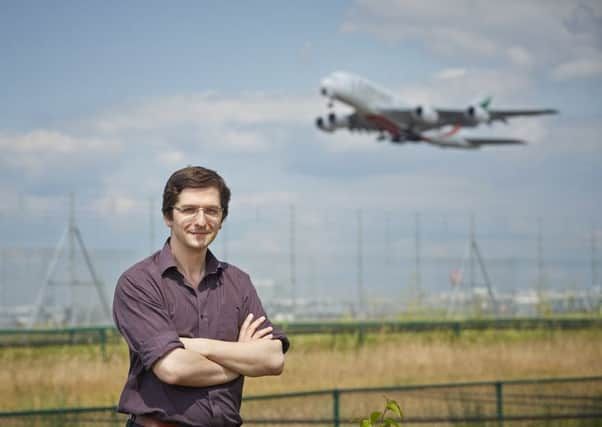Climate change will make travel longer as jet stream speeds up


The findings could have serious implications for airlines, passengers and airports, as well as the planet.
Rising global temperatures are set to speed up the jet stream – a high-altitude wind blowing from West to East across the Atlantic.
Advertisement
Hide AdAdvertisement
Hide AdResearchers at University of Reading say this will shorten eastbound transatlantic flights while lengthening journeys in the opposite direction.
However, they predict longer flying time will outweigh any savings on travel between Europe and North America, estimating at least £15 million in extra fuel costs and 70 million kilogrammes in additional carbon dioxide emissions every year.
The study, led by atmospheric scientist Dr Paul Williams, calculates the 600 daily flights across the Atlantic will rack up an extra 2,000 hours in the air annually. This will add millions of pounds to fuel costs and increase the risk of delays.
“The aviation industry is facing pressure to reduce its environmental impacts, but this study shows a new way in which aviation is itself susceptible to the effects of climate change,” he said.
“The bad news for passengers is that westbound flights will be battling against stronger headwinds.
“The good news is that eastbound flights will be boosted by stronger tailwinds, but not enough to compensate for the longer westbound journeys. “The net result is that round-trip journeys will significantly lengthen.
“This effect will increase the fuel costs to airlines, potentially raising ticket prices, and it will worsen the environmental impacts of aviation.”
The team looked at the effects of doubling the amount of carbon dioxide in the atmosphere, which will occur within the next few decades unless emissions are cut quickly.
Advertisement
Hide AdAdvertisement
Hide AdThe average jet-stream winds along the flightpath between London’s Heathrow airport and New York’s JFK are predicted to become 15 per cent faster in winter, increasing from 48mph to 55mph –with similar increases in the other seasons. As a result, London-bound flights will become twice as likely to take under five hours and 20 minutes, suggesting record-breaking crossing times will occur more regularly in future.
Meanwhile, flights to New York will be doubly likely to take in excess of seven hours, meaning delayed arrivals will become increasingly common.
Analysis showed the extra time spent in the air means transatlantic flights would burn £15.2m more fuel annually and generate extra greenhouse gases equivalent to the emissions from 7,100 British homes.
Dr Williams says this could be just the tip of the iceberg.
He said: “The jet stream encircles the globe, and there is one in the southern hemisphere too.
“It is possible that flights elsewhere in the world will also suffer from a similar jet stream effect.”
The latest findings are further evidence of the impact of climate change on aviation. A previous University of Reading study found clear-air turbulence will become stronger and more frequent as a result of warming.